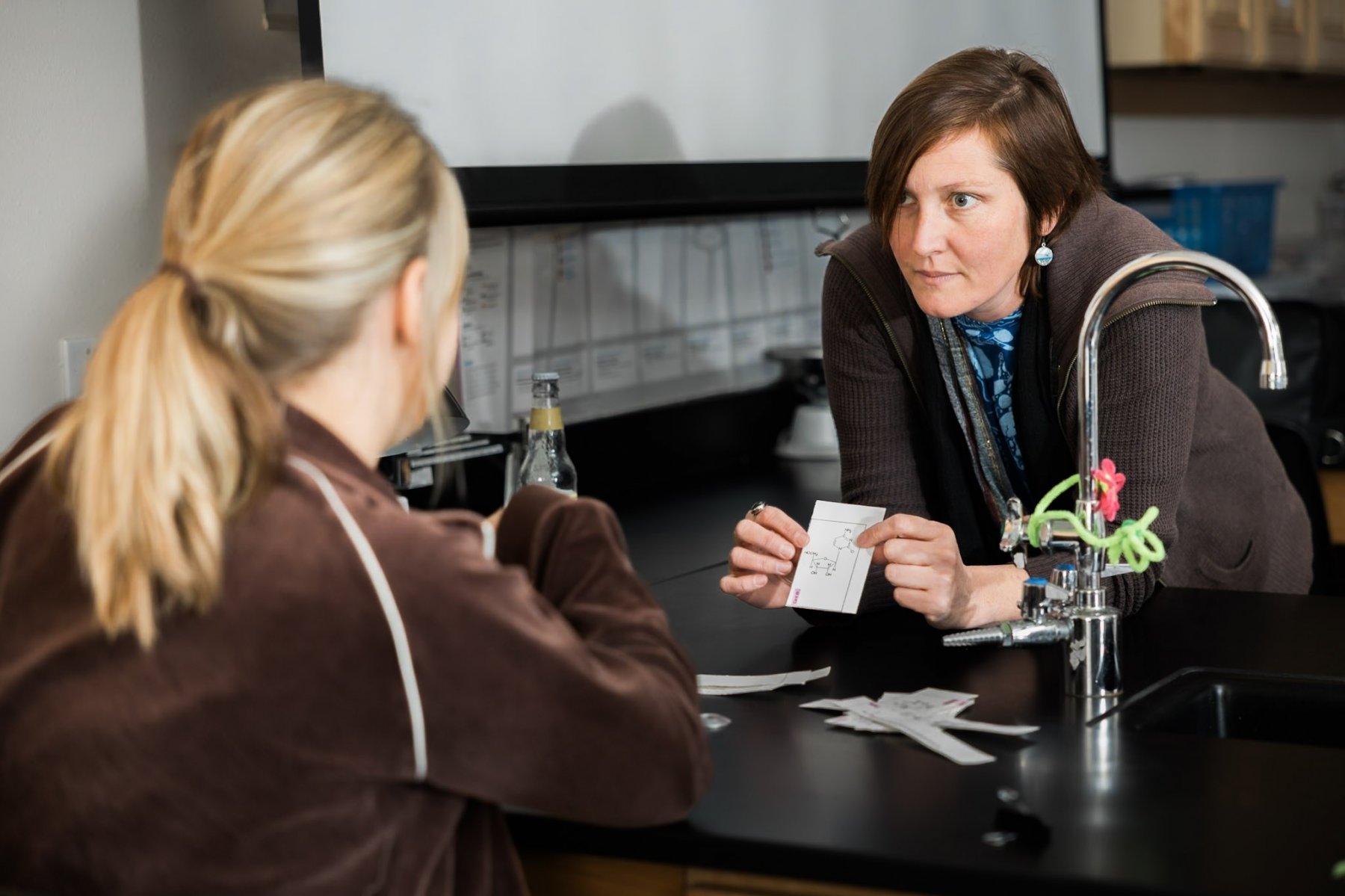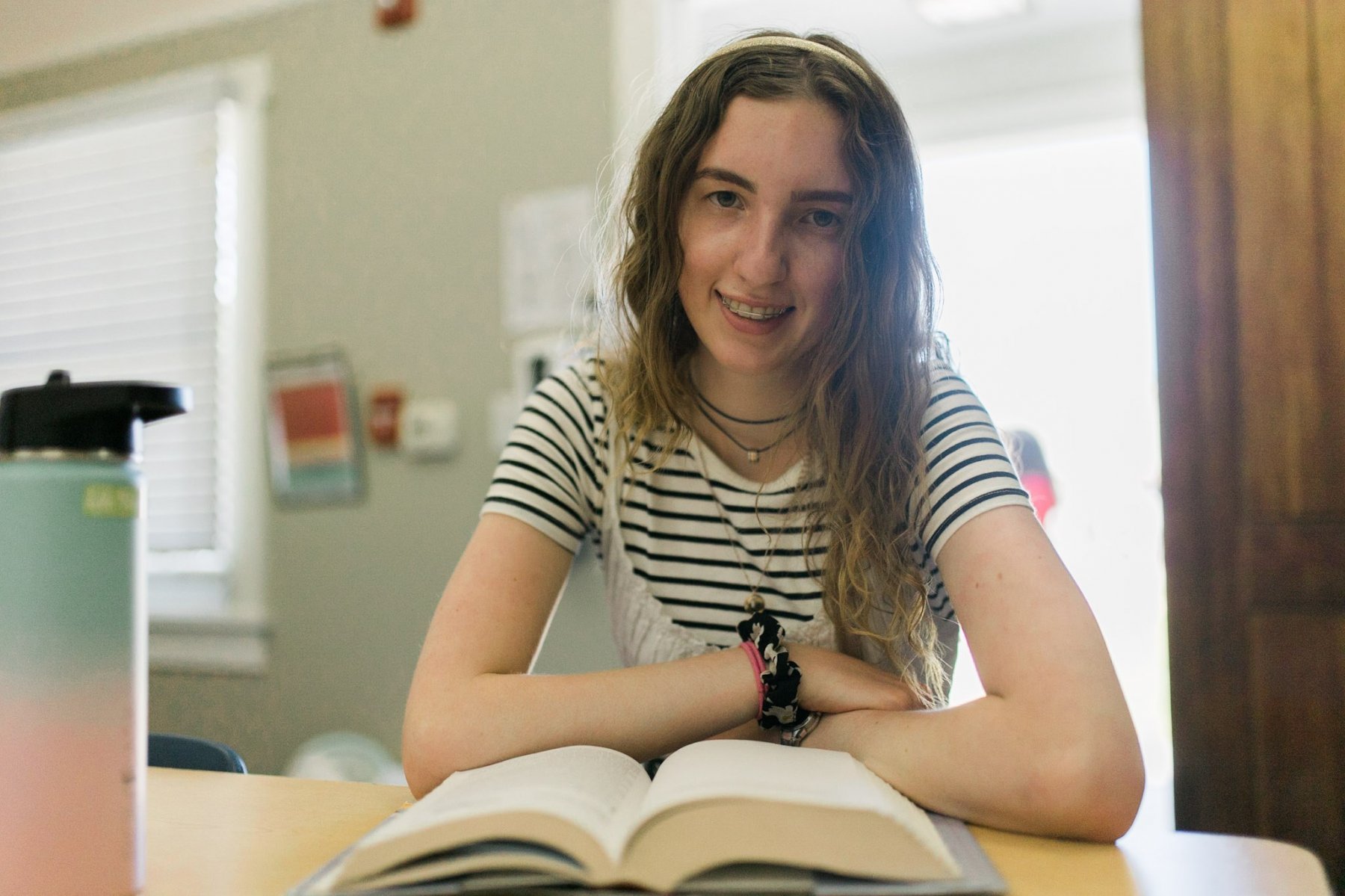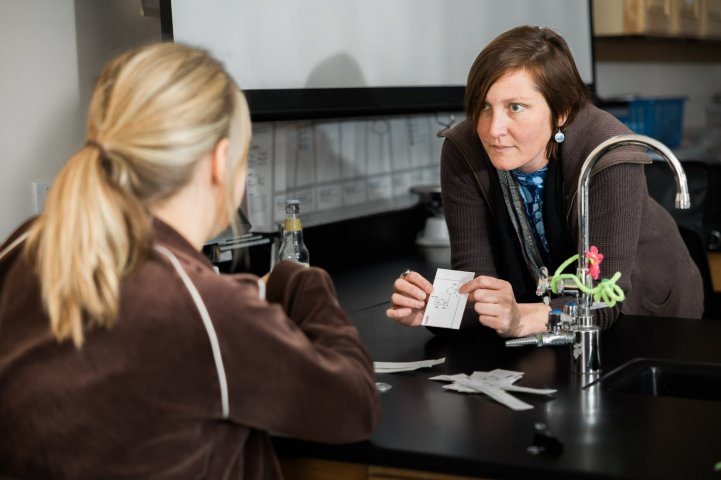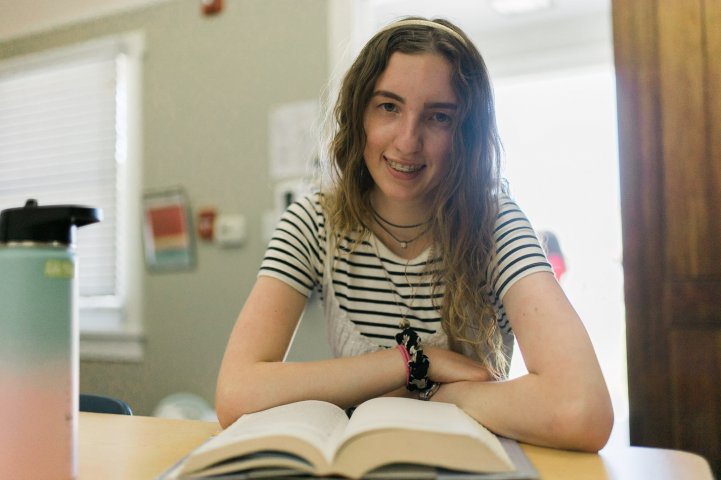Grades + Narrative Assessment
A creative, responsive curriculum merits meaningful, authentic assessment. Waverly teachers use many techniques for measuring and sharing student progress. They check for understanding and growth on a daily basis through observation and evaluation of written and spoken expression. Students may create projects, write papers, or present research either individually or as part of a small group. Teacher feedback comes as detailed written suggestions on an assignment or as verbal responses in the context of a class discussion. Teachers guide self-reflection and peer review, as well. While teachers may occasionally use quizzes or tests to evaluate understanding, testing is not the ultimate measure of ability, knowledge, or performance.
Waverly believes that a focus on letter grades distracts students from the most important elements of their education. Here, the emphasis is on individual academic progress rather than grades. Teachers write narrative analyses of student work and cumulative progress reports twice a year. These semester reports are designed to provide insight into the intellectual development of each student.
For the purposes of college admissions, letter grades are recorded on a cumulative transcript for high school students, but the school eschews conversations based on letter grades. We encourage students to focus on learning for learning’s sake, to note where growth is needed, and to adopt specific strategies for improvement when necessary. Students in 9th and 10th grades receive their cumulative GPA at the end of each school year. Grades are made available to students and parents/guardians beginning in 11th grade. In 11th and 12th grades, students receive grades for each class to help them prepare for the college application process.





